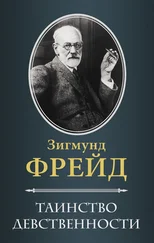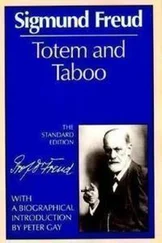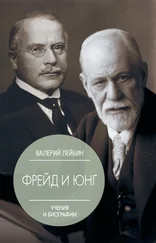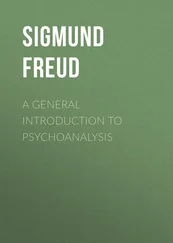One can scarcely find a patient who does not make the attempt to reserve some province for himself against the intrusion of the analysis. One patient, whom I must reckon among the most highly intelligent, thus concealed an intimate love relation for weeks; and when he was asked to explain this infringement of our inviolable rule, he defended his action with the argument that he considered this one thing was his private affair. Naturally, analytic treatment cannot countenance such right of sanctuary. One might as well try in a city like Vienna to allow an exception to be made of great public squares like the Hohe Markt or the Stephans Platz and say that no one should be arrested in those places—and then attempt to round up some particular wrong–doer. He will be found nowhere but in those sanctuaries. I once brought myself around to permit such an exception in the case of a man on whose capacity for work a great deal depended, and who was bound by his oath of service, which forbade him to tell anyone of certain things. To be sure, he was satisfied with the results—but not I; I resolved never to repeat such an attempt under these conditions.
Compulsion neurotics are exceedingly adept at making this technical rule almost useless by bringing to bear all their over–conscientiousness and their doubts upon it. Patients suffering from anxiety–hysteria sometimes succeed in reducing it to absurdity by producing only notions so remote from the thing sought for that analysis is quite unprofitable. But it is not my intention to go into the way in which these technical difficulties may be met. It is enough to know that finally, by means of resolution and perseverance, we do succeed in wresting a certain amount of obedience from the patient toward this basic rule of the technique; the resistance then makes itself felt in other ways. It appears in the form of an intellectual resistance, battles by means of arguments, and makes use of all difficulties and improbabilities which a normal yet uninstructed thinking is bound to find in the theory of analysis. Then we hear from one voice alone the same criticisms and objections which thunder about us in mighty chorus in the scientific literature. Therefore the critics who shout to us from outside cannot tell us anything new. It is a veritable tempest in a teapot. Still the patient can be argued with, he is anxious to persuade us to instruct him, to teach him, to lead him to the literature, so that he may continue working things out for himself. He is very ready to become an adherent of psychoanalysis on condition that analysis spare him personally. But we recognize this curiosity as a resistance, as a diversion from our special objects, and we meet it accordingly. In those patients who suffer from compulsion neuroses, we must expect the resistance to display special tactics. They frequently allow the analysis to take its way, so that it may succeed in throwing more and more light on the problems of the case, but we finally begin to wonder how it is that this clearing up brings with it no practical progress, no diminution of the symptom. Then we may discover that the resistance has entrenched itself in the doubts of the compulsion neurosis itself and in this position is able successfully to resist our efforts. The patient has said something like this to himself: "This is all very nice and interesting. And I would be glad to continue it. It would affect my malady considerably if it were true. But I don't believe that it is true and as long as I don't believe it, it has nothing to do with my sickness." And so it may go on for a long time until one finally has shaken this position itself; it is then that the decisive battle takes place.
The intellectual resistances are not the worst, one can always get ahead of them. But the patient can also put up resistances, within the limits of the analysis, whose conquest belongs to the most difficult tasks of our technique. Instead of recalling, he actually goes again through the attitudes and emotions of his previous life which, by means of the so–called "transference," can be utilized as resistances to the physician and the treatment. If the patient is a man, he takes this material as a rule from his relations to his father, in whose place he now puts the physician, and in so doing constructs a resistance out of his struggle for independence of person and opinion; out of his ambition to equal or to excel his father; out of his unwillingness to assume the burden of gratitude a second time in his life. For long times at a stretch one receives the impression that the patient desires to put the physician in the wrong and to let him feel his helplessness by triumphing over him, and that this desire has completely replaced his better intention of making an end to his sickness. Women are adepts at exploiting, for the purposes of the resistance, a tender, erotically tinged transference to the physician. When this leaning attains a certain intensity, all interest for the actual situation of the treatment is lost, together with every sense of the responsibility which was assumed by undertaking it. The never–failing jealousy as well as the embitterment over the inevitable repudiation, however gently effected, all must serve to spoil the personal understanding between patient and physician and thus to throw out one of the most powerful propelling forces of the analysis.
Resistances of this sort must not be narrow–mindedly condemned. They contain so much of the most important material of the patient's past and reproduce it in such a convincing manner, that they become of the greatest aid to the analysis, if a skillful technique is able to turn them in the right direction. It is only remarkable that this material is at first always in the service of the resistance, for which it serves as a barrier against the treatment. One can also say that here are traits of character, adjustments of the ego which were mobilized in order to defeat the attempted change. We are thus able to learn how these traits arose under the conditions of the neurosis, as a reaction to its demands, and to see features more clearly in this character which could otherwise not have shown up so clearly or at least not to this extent, and which one may therefore designate as latent. You must also not get the impression that we see an unforeseen endangering of the analytic influence in the appearance of these resistances. On the contrary, we know that these resistances must come to light; we are dissatisfied only when we do not provoke them in their full strength and so make them plain to the patient Indeed, we at last understand that overcoming these resistances is the essential achievement of analysis and is that portion of the work which alone assures us that we have accomplished something with the patient.
You must also take into account the fact that any accidental occurrences which arise during the treatment will be made use of by the patient as a disturbance—every diverting incident, every statement about analysis from an inimical authority in his circle, any chance illness or any organic affection which complicates the neurosis; indeed, he even uses every improvement of his condition as a motive for abating his efforts. You will then have gained an approximate, though still an incomplete picture of the forms and devices of the resistance which must be met and overcome in the course of every analysis. I have given this point such detailed consideration because I am about to inform you that our dynamic conception of the neurosis is based on this experience with the resistance of neurotic patients against the banishment of their symptoms. Breuer and I both originally practiced psycho–therapy by means of hypnosis. Breuer's first patient was treated throughout under a condition of hypnotic suggestibility, and I at first followed his example. I admit that my work at that time progressed easily and agreeably and also took much less time. But the results were capricious and not permanent; therefore I finally gave up hypnotism. Then only did I realize that no insight into the forces which produce these diseases was possible as long as one used hypnotism. The condition of hypnosis could prevent the physician from realizing the existence of a resistance. Hypnosis drives back the resistance and frees a certain field for the work of analysis, but similarly to the doubt in the compulsion neurosis, in so doing it clogs the boundaries of this field till they become impenetrable. That is why I can say that true psychoanalysis began when the help of hypnotism was renounced.
Читать дальше







